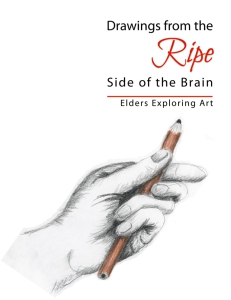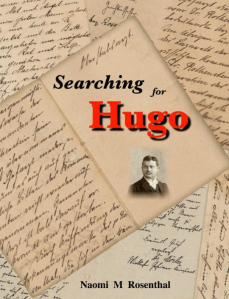 “Rosenthal is an intriguing writer, committed to learning, and capturing, her own truth.
“Rosenthal is an intriguing writer, committed to learning, and capturing, her own truth.
A collection of narrative vignettes, Missing Insects is Naomi Rosenthal’s memoir, spanning her early childhood to her own adulthood and eventual motherhood. Though intimate and uniquely personal in content, Rosenthal’s themes of family and the historic legacies haunting them reflect a universal truth, supported by her thoughtful and measured observations. Rosenthal writes from a place of understanding and appreciation of the histories that strained her relationship with her parents, which in part inspired her to strike out on her own at a young age and determine for herself what the world might offer. Her journey is chronologically organized into five segments of varying lengths, each one further broken out into individually titled essays or chapters. … Artistically inclined, Rosenthal illustrates her pieces with images reminiscent of cave paintings—simple, yet captivating. The author encounters an abundant number of insects while living and traveling in Africa, an abundance she recognizes as absent from her American and European homes. This dichotomy of existence versus absence proves an effective metaphor throughout her memoir as she describes what was and was not present in her family, how existing dynamics were defined by those that were absent. The presence of insects is an environmental reality, just as the historic reality of the Holocaust defined the lives of her parents and that definition, in turn, shaped her environment growing up under their often-disapproving eyes. The causal relationship between the Holocaust and Rosenthal’s family dynamics is hinted at but not stated until midway through the memoir. After her brother dies in a tragic accident, she wonders, “Maybe these things were a legacy of the Holocaust and its effects on our parents, especially our mother. I think subconsciously, we felt we had to make it up to our parents.” Earlier identification and explication of survivor’s guilt, which is more fully explored at the conclusion, would help explain Rosenthal’s commitment to traveling, frequently alone and often through dangerous or war-torn countries. The motivation behind the author’s actions and decisions is sometimes difficult to tease out but surfaces by the end. … Rosenthal is an intriguing writer, committed to learning, and capturing, her own truth. Missing Insects introduces an engaging voice that calls attention to global, historical, and socioeconomic realities.”
—Foreword Clarion Reviews
https://www.forewordreviews.com/reviews/missing-insects
click on triangle below to get email notifications of blog posts
 A group of seniors meets at a drawing class held at a senior center every Friday. Some have been drawing for decades, while for others this is a new experience. Sometimes they model for each other, sometimes models are recruited from the center’s poolroom, computer lab, game room, ceramics studio, TV lounge, or the office. Occasionally the teacher lays out assorted objects on a table. Some draw the still life, while others sketch the people drawing. This book contains some of their artwork.
A group of seniors meets at a drawing class held at a senior center every Friday. Some have been drawing for decades, while for others this is a new experience. Sometimes they model for each other, sometimes models are recruited from the center’s poolroom, computer lab, game room, ceramics studio, TV lounge, or the office. Occasionally the teacher lays out assorted objects on a table. Some draw the still life, while others sketch the people drawing. This book contains some of their artwork.





 (4.5 / 5)
(4.5 / 5)